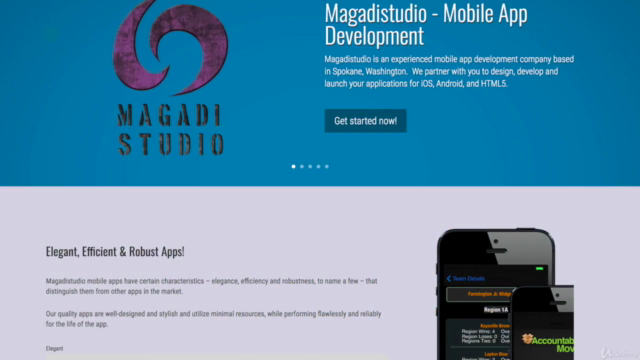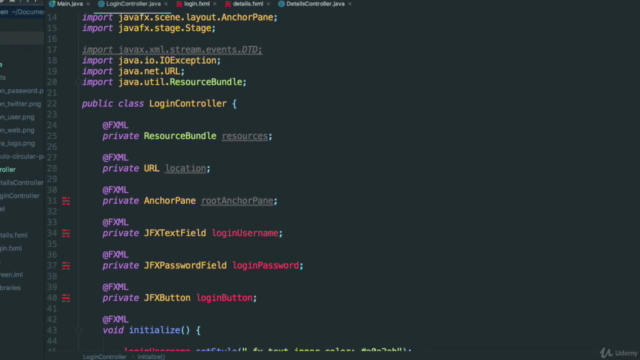Java Masterclass - Beginner to Expert Guide: Java & JavaFX

Why take this course?
¡Hola! It seems like you've provided a comprehensive outline for a Java programming course, emphasizing the importance of understanding Java to develop Android and web applications using frameworks such as Spring Boot and Vaadin. You've also highlighted the versatility of Java across different platforms and devices, which is indeed one of its key strengths.
If you're looking to create a similar course or are interested in learning Java, this outline covers many essential aspects that would be beneficial for learners at various levels, from complete beginners to experienced developers looking to update their skills.
Here are a few points that could complement your existing content:
-
Version Control Systems: Introduce tools like Git and GitHub, which are crucial for collaborative coding and version management.
-
Object-Oriented Programming (OOP): Since Java is an object-oriented language, a thorough understanding of OOP concepts is key. This includes classes, objects, inheritance, encapsulation, and polymorphism.
-
Core Java Concepts: Cover the fundamental aspects of Java, such as data types, operators, control flow statements, exception handling, concurrency (multithreading), I/O operations, and networking.
-
JavaFX: Teach how to create graphical user interfaces (GUIs) with JavaFX, which is important for desktop and application UI development.
-
Spring Boot: Explore the Spring Boot framework for developing stand-alone, production-grade applications. It's particularly useful for building microservices and RESTful services.
-
Vaadin Framework: Introduce Vaadin for creating rich internet applications with a minimal amount of coding.
-
Design Patterns: Discuss common design patterns used in Java, which can help learners write more efficient and scalable code.
-
Testing: Teach the importance of testing in software development with JUnit for unit testing, Mockito for mocking, and other testing tools.
-
Build Tools: Explain the usage of build automation tools like Maven and Gradle.
-
Continuous Integration/Continuous Deployment (CI/CD): Introduce practices and tools for CI/CD, which are essential for streamlining the development process.
-
Best Practices: Share guidelines on writing clean, efficient, and maintainable code in Java.
-
Real-world Projects: Encourage hands-on learning by involving students in building real-world projects throughout the course.
-
Advanced Topics: For experienced developers, delve into advanced topics such as JVM performance tuning, security best practices, and high-performance computing with Java.
Remember to include code examples, interactive assignments, quizzes, and a supportive community forum where students can ask questions and help each other out. This approach will ensure that learners at all levels can benefit from the course and stay engaged throughout their learning journey.
If you have any specific questions or need further assistance with your Java programming course, feel free to ask!
Course Gallery




Loading charts...
Comidoc Review
Our Verdict
This Java Masterclass provides a thorough exploration of the Java ecosystem - from beginner to expert level. With well-crafted analogies and engaging presentation style, the course teaches you how to build various Java applications in real-world scenarios. However, while delving into the core programming concepts, it struggles with maintaining consistency as some information becomes outdated or lacks detail in certain areas.
What We Liked
- Comprehensive coverage of Java basics and advanced concepts with real-world applications
- Excellent teaching style: clear, encouraging, slow pace, great analogies & humor.
- Hands-on approach building several Java projects including SpringBoot & Vaadin applications
Potential Drawbacks
- Some course content is outdated and not in sync with the latest Java versions
- Explanation of certain concepts could be more concise, leaving some topics confusing